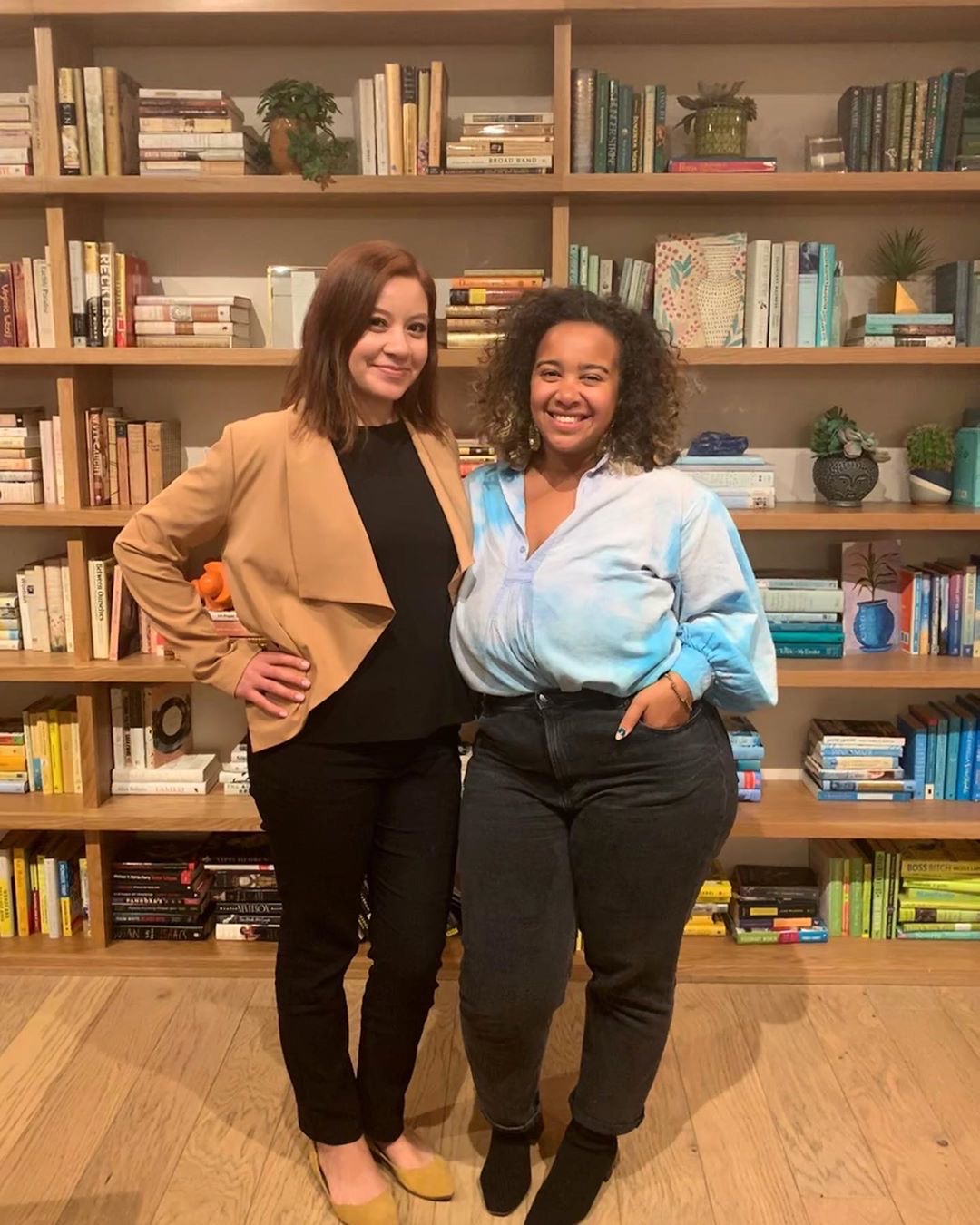Anxiety is a real thing for many people. As a founder and mother, I experience it even more often than before. A surprisingly high number of adults in the U.S. alone of 30% will at some point have an anxiety disorder. But what’s even more surprising to me, is that no one really talks about it. Sure, there are some inspirational quotes here and there on social media that let us all know that we are not the only ones experiencing intense and excessive thoughts, but not many real conversations are happening around that topic and what it means to live with the stress and fear and thoughts that come with suffering from anxiety. Especially during the holiday season that can be very triggering for many people.

Photo by Hailey Reed on Unsplash
Just like other important topics in life, anxiety is easier to manage, when the person experiencing it, knows they are not alone. Sharing things with others, getting the support or sometimes even just getting acknowledged can have a huge impact on how we feel about ourselves and what next steps we’ll take to feel better.
Personally, I have found that the best way to cope with my anxiety is to surround myself with people that are in similar situations and that understand what keeps me up at night. In my case, that’s mostly being a founder. (Thankfully nowadays my kids are old enough to sleep through the night so being a mom doesn’t contribute anymore to sleepless nights). Joining groups of other female founders has really helped me, like Dreamers and Doers. Next year I’ll be joining the Founders Forward group here in LA that brings female CEOs together, another great network of support for people in similar situations. There are many of these groups that can be very specific for your circumstances and allow you to feel less alone and more acknowledged in your struggle.
When my kids were younger, mommy and me groups helped me. I would join Yoga classes and host meetups myself. Meetup.com is a great resource to find groups with likeminded people or a shared hobby.
Now that being said, joining a group alone will not fix anxiety. But it can ease the feeling of being the only one experiencing it. A psychologist would be the very best person to contact when you feel overwhelmed and need help.
At findSisterhood we want to provide the conversations and resources for women to know they have an entire sisterhood behind them. So we started hosting spotlights, Q&A’s with experts that can help guide the community. A recent one was with April Mayorga a psychotherapist for Latinx Therapy.

Photo by April Mayorga, with April and Zoila Darton, founder of Word Agency
Four Learnings From The Anxiety Spotlight with April that I want to share with you are:
- How to cope with anxious feelings:
Anxiety is often experienced in a mental and physical state (e.g. rapid heart rate, shortness of breath, and muscle tension). I would start by recognizing your body’s physical symptoms. The best coping skill to start with is deep breathing (4 seconds inhale, 4 seconds of holding the breath, and 4 seconds of exhaling). This helps slow down the breath and promote a sense of control in the body.
- How to feel better when you’re feeling low:
Make a list of activities or things you enjoy (make sure these activities are free and easily accessible). For example: go for a walk, bake a cake, talk to a friend, watch a movie, paint, or journal. Those are basic activities that promote feelings of happiness and relaxation, and they can counteract some of the negative emotions you are experiencing.
- How to sleep better when anxious thoughts run your mind:
I would recommend not using electronics at least 1 hour before bed (some experts say 2 hours before). You can wind down with a book, and a meditation. I always suggest downloading a free meditation app like Headspace or Calm and listening to deep breathing and sleep meditations. Also, if your brain can’t shut down, set a timer for 5 minutes to allow your brain to run its course and think of everything and anything it wants. After this, don’t allow it more time. Then, move on with meditation. Guided meditations are more helpful because it helps you follow along
- How to cope with overthinking:
All too often we experience our brains playing tricks on us in creating a false reality, scientifically this overthinking is described as “cognitive distortions” and can lead us down the rabbit-hole. The best ways to overcome this is by journaling. Write down: 1. What are you worried about? 2. How likely is it that your worry will come true (give examples of past experiences or other examples to support your evidence) 3. If your worry comes true, what is the worst thing that could happen? 4. If your worry does come true, what will most likely change? 5. If your worry does come true, what are the chances that you will be okay?
I use two different journals that don’t just help with overthinking but create a mindset of gratitude and goal setting. The Five Minute Journal is one that I write in together with my daughter in the morning and it instantly makes us start our day happier. And the Master Of My Universe Gratitude Journal is one I use for my company as a collection of all the wonderful things that are happening since starting a business and as a reminder during hard days. Practicing gratitude and creating habits is something that has really helped me with anxiety over the years.
We need to break the stigma that taking care of our mental health makes us somewhat less than. Taking care of our health, including mental health, makes us stronger and more capable people and there is absolutely nothing wrong with taking a day off when you need it. Here is one of my all-time favorite conversations between a CEO of a company, and a woman taking a day off for her mental health. I hope we can all together normalize taking care of ourselves more in the future, start with you!
You got this,
Ana

